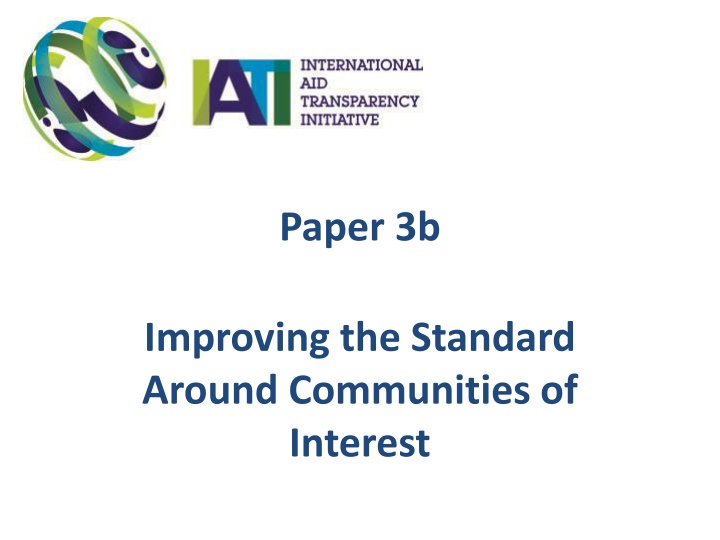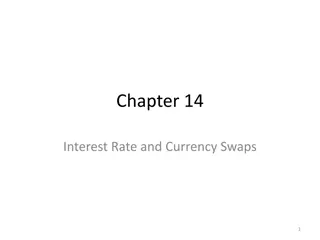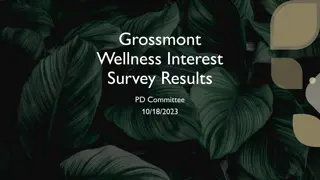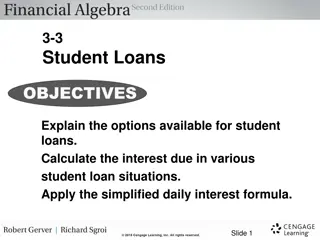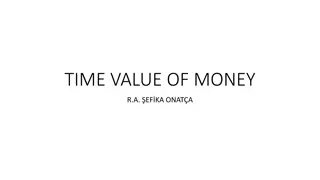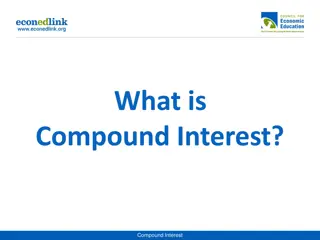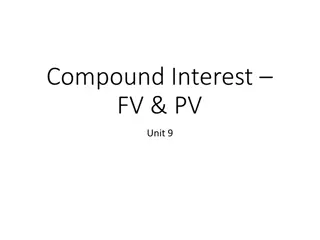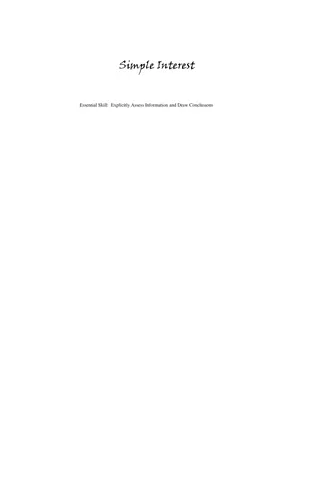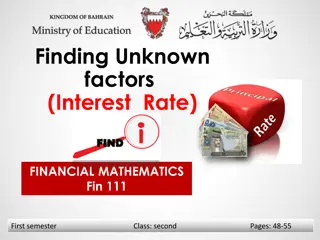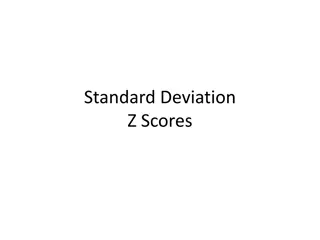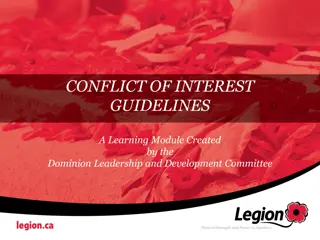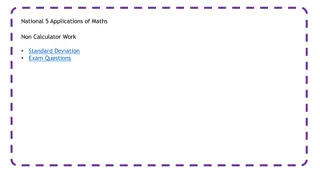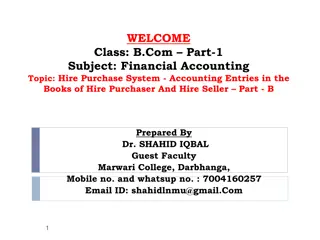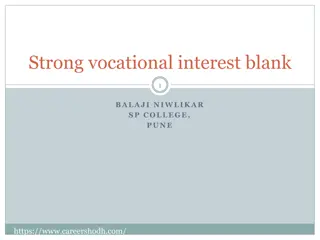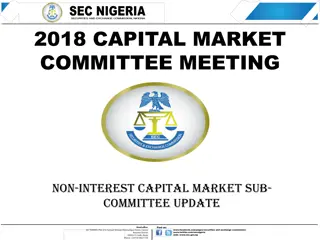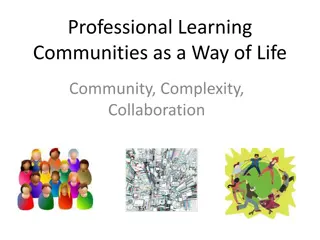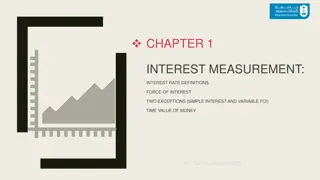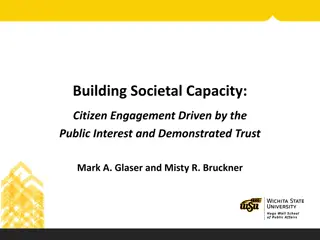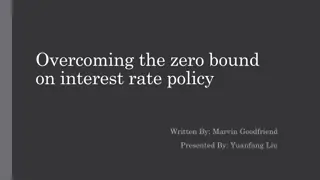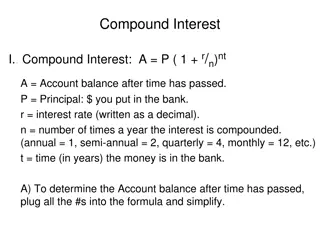Improving Standard Around Communities of Interest
A discussion on enhancing the IATI standard through multi-stakeholder participation, traceability, and adapting to diverse agency needs. Emphasizing the importance of active engagement with communities of interest for standard development credibility.
Download Presentation

Please find below an Image/Link to download the presentation.
The content on the website is provided AS IS for your information and personal use only. It may not be sold, licensed, or shared on other websites without obtaining consent from the author.If you encounter any issues during the download, it is possible that the publisher has removed the file from their server.
You are allowed to download the files provided on this website for personal or commercial use, subject to the condition that they are used lawfully. All files are the property of their respective owners.
The content on the website is provided AS IS for your information and personal use only. It may not be sold, licensed, or shared on other websites without obtaining consent from the author.
E N D
Presentation Transcript
Paper 3b Improving the Standard Around Communities of Interest
IATI is ... a common electronic format for the comprehensive and timely reporting of all activities by all participants in the delivery of development cooperation and humanitarian aid
We are multi-stakeholder by role Extending Agencies Implementing Agencies Donors Government agencies ODA Multilaterals Private sector contractors Foundations & NGOs NGOs (International & National) Fund managers Private Sector NGOs Private Sector Financial Institutions Pooled Funds
One size doesnt fit all Implementing Agencies Donor specific fields do not apply. NGOs DAC language is scary and alienating. It doesn t make sense. Private equity and debt Forward-looking data and conditions are commercially sensitive.
One size doesnt fit all (cont.) Technical Cooperation Measure contributions by time and value Humanitarian Aid Timescales are different. Emergencies. Appeals... Crowd funding New models, new technologies
Publish Once Use Often CRS AIMS FSS IATI IFAF FTS EDRIS
The Steering Committee is asked to acknowledge that the Secretariat's active encouragement and engagement with communities of interest is essential for the development of the standard.
The Steering Committee is asked to acknowledge that the authority and credibility of the standard will be enhanced by the addition of optional elements that service the needs of particular sectors, information systems or communities of interest.
Strengthen the Core Flexible add-ons wherever required Strengthen Core Fields that apply to all [ >> Paper 4b. ]
Paper 4b First Integer Upgrade to the Standard
Decimals and Integers Decimal Integer Bug-fixes Substantial additions involving new areas of data Code list modifications New mandatory fields Minor additions to the standard which improve the functionality without introducing substantial new content Changes that are not backwardly compatible Changes will be optional Proposed minor upgrades that are disputed by one or more signatories Changes will be backwardly compatible
Upgrades to Date 1.02 Bugs, code lists, definitions 1.03 Budget Identifier, Economic Classification, Activity Scope, UN Regions vocabulary, Missing CRS Fields, FSS Activity-level 1.04 (pending) Geocoding
In accordance with the agreed process the Secretariat hereby requests permission to initiate procedures in preparation for Version 2.01 of the Standard which would begin today with an invitation for proposals for inclusion and which will culminate after the formal consent of members at the next Steering Committee meeting in [April 2014].
Process Proposals Shortlist Consultation SC Approval Consultation Drafting Development Testing Live
Initial suggestions Keep it simple Primarily a test of process. Due diligence on change control Strengthen the core standard Review mandatory and recommended fields Categorisation for Quality Control Publisher type and function to improve QC statistics Organisation Identifiers Standardise DAC Codes; Government Depts & Agencies
Paper 4c Including INTOSAI s Integrated Financial Accountability Framework in IATI s Organisation Standard
What is INTOSAI? International Organisation of Supreme Audit Institutions USA General Accounting Office UK EU DRC World Bank 191 National Audit Office European Court of Auditors Cour des Comptes members
IFAF a brief history 2004 Tsunami. (Where did the money go?) Working Group on Accountability for and Audit of Disaster-Related Aid Integrated Financial Accountability Framework
What is IFAF Donor Annual Aggregated Audited Flows Between Organisations INGO INGO Country Office National NGO
Two standards one format Common data format IFAF IATI
Conclusions Consistent with Organisation Standard Avoid costly duplication of effort IATI committed to improving humanitarian reporting Publish Once Use Often (when INTOSAI comes knocking) INTOSAI and IFAF share commitment to traceability
The Steering Committee is requested to approve in principle the inclusion of IFAF as an optional module within the Organisation standard and to authorise the Secretariat to submit a proposal for modifications to the standard for consultation in the next decimal upgrade.
